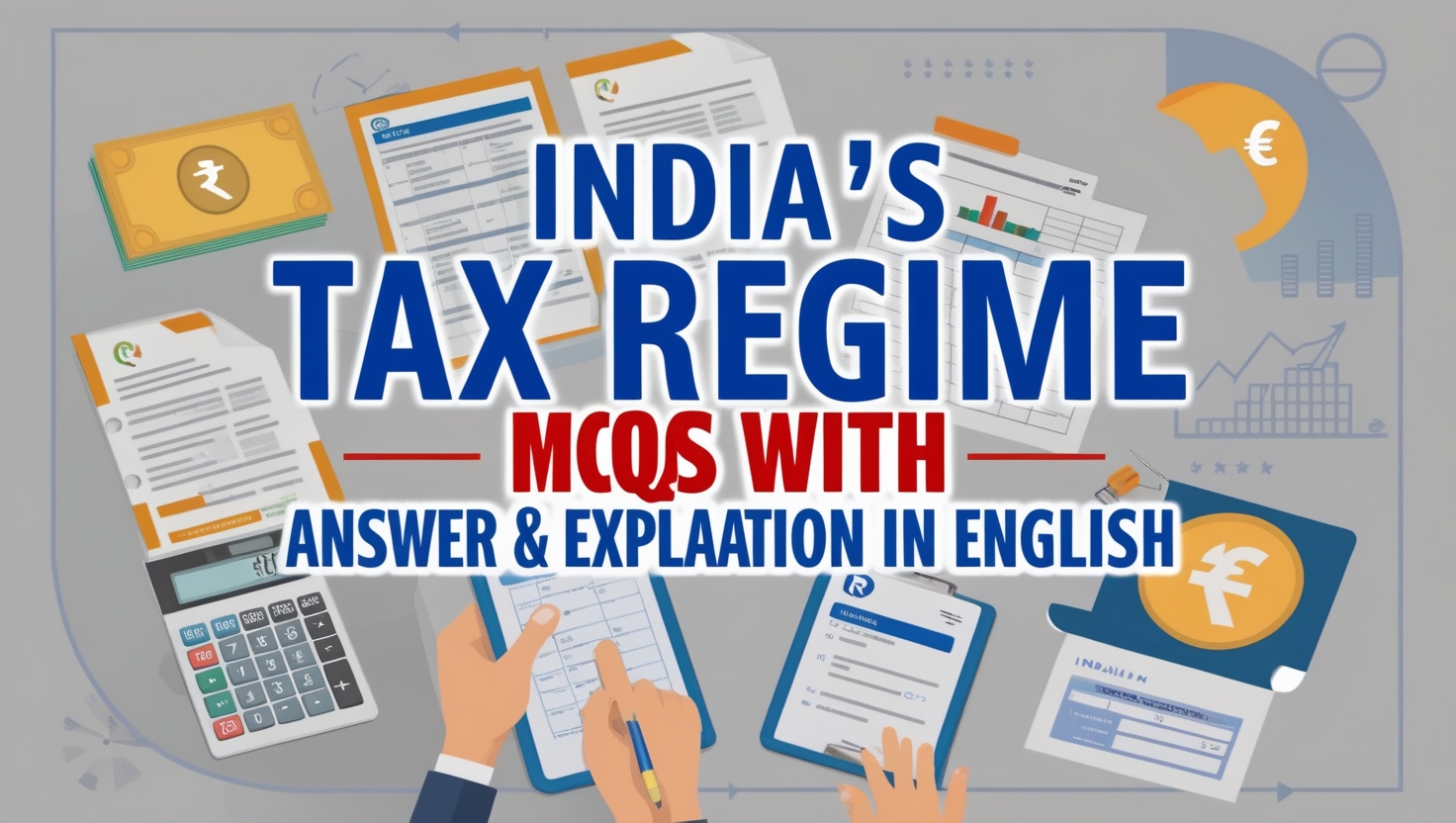
India’s tax regime plays a crucial role in shaping the nation’s economy and public finance. In this article titled India’s Tax Regime GK MCQs With Answer & Explanation in English, we delve into key aspects of India’s taxation system, including direct and indirect taxes, GST, and tax reforms.
Designed for competitive exam aspirants and knowledge enthusiasts, this comprehensive guide offers multiple-choice questions accompanied by detailed explanations to enhance your understanding of India’s tax policies and their implications.
1. Agricultural Income Tax revenue goes to which of the following governments in India?
- State Governments
- Collected by State Governments, delivered to Central Government
- Collected by Central Government, delivered to State Governments
- Central Government
Show Answer
Answer: State Governments
Agricultural Income Tax revenue goes to State Governments in India. It is considered a State subject, and the power to levy and collect taxes on agricultural income lies with State Governments.
2. Ad Valorem Tax is levied on the basis of which among the following?
- Volume
- Value
- Production
- Export
Show Answer
Answer: Value
Ad Valorem Tax is indeed levied based on the value of the goods. The tax amount is determined as a percentage of the value of the taxed item.
3. Which among the following is a direct tax?
- Excise Duty
- Sales Tax
- VAT
- Income Tax
Show Answer
Answer: Income Tax
Income Tax is categorized as a direct tax. It is imposed directly on individuals or entities and is based on their income, profits, or gains.
4. Which among the following is a Progressive Tax?
- Excise Duty
- Sales Tax
- VAT
- Income Tax
Show Answer
Answer: Income Tax
Income Tax is a direct tax.
5. Which among the following is a Progressive Tax?
- Customs duty
- Development Surcharge
- Income tax
- Sales tax
Show Answer
Answer: Income tax
Income tax is an example of a progressive tax. Progressive taxation means that individuals with higher incomes pay a larger proportion of their income in taxes.
6. Which among the following taxes is levied by the state government only?
- Wealth Tax
- Estate Duty
- Corporation Tax
- Entertainment Tax
Show Answer
Answer: Entertainment Tax
Entertainment tax is typically levied by state governments in India. It is imposed on various forms of entertainment, including movie tickets and cultural events.
7. Which committee recommended the elimination of Standard deduction?
- Jankiramanan Committee
- Nadkarni Committee
- Vijay Kelkar Committee
- Raja Chelliah Committee
Show Answer
Answer: Vijay Kelkar Committee
The Vijay Kelkar Committee made various recommendations, including fiscal policy reforms, but it did not specifically recommend the elimination of the Standard Deduction.
8. What is correct about Giffen Goods?
- They obey laws of demand
- They don’t obey laws of demand
- They follow elasticity of demand
- The demand-supply curve of Giffen Goods is a parabola
Show Answer
Answer: They don’t obey laws of demand
Giffen Goods are unusual in that they do not obey the standard laws of demand. When the price of a Giffen good rises, the quantity demanded also rises, contradicting the typical law of demand.
9. In which year GST laws were implemented replacing a complex web of Central and State taxes?
- 2013
- 2015
- 2017
- 2019
Show Answer
Answer: 2017
On July 1, 2017, the Goods and Services Tax (GST) laws were indeed implemented in India, replacing a complex web of Central and State taxes. Goods and services are categorized into different tax slabs under the Indian GST, including 5%, 12%, 18%, and 28%.
10. In which year was the Tax Reforms committee constituted by the Government of India?
- 1975
- 1980
- 1991
- 1995
Show Answer
Answer: 1991
The Tax Reforms committee was constituted by the Government of India in 1991 to make recommendations for tax reforms.








Leave a Reply